This article was co-authored by Roy Nattiv, MD and by wikiHow staff writer, Eric McClure. Dr. Roy Nattiv is a Board-Certified Pediatric Gastroenterologist in Los Angeles, California. With over 20 years of experience he specializes in a broad range of pediatric gastrointestinal and nutritional illnesses such as constipation, diarrhea, reflux, food allergies, poor weight gain, SIBO, IBD, and IBS. He completed his pediatric residency at the Children’s Hospital at Montefiore, Albert Einstein College of Medicine in New York, and his fellowship at the University of California, San Francisco (UCSF). While at UCSF, he was a California Institute of Regenerative Medicine (CIRM) fellowship trainee and was awarded the North American Society for Pediatric Gastroenterology, Hepatology, and Nutrition (NASPGHAN) Fellow to Faculty Award in Pediatric IBD Research. Dr. Nattiv received his undergrad degree from the University of California, Berkeley, and his medical degree (MD) from the Sackler School of Medicine in Tel Aviv, Israel.
There are 18 references cited in this article, which can be found at the bottom of the page.
This article has been viewed 8,537 times.
Ginger is a popular herbal remedy for a variety of treatments due to the fact that it’s anti-inflammatory and it has a proven track record when it comes to soothing nausea. Unfortunately, acid reflux isn’t normally caused by inflammation, and you may not necessarily be nauseous! There are still a few reasons you may benefit from ginger though, and ginger isn’t particularly dangerous, so it may be worth exploring—just don’t expect it to totally solve your symptoms. Also, if you get acid reflux regularly, see a doctor. Chronic acid reflux (GERD) does require treatment, although it is very treatable.
Steps
Can drinking ginger tea help with acid reflux?
-
1It’s not totally clear it helps acid reflux, but it might! Ginger is definitely an all-star when it comes to treating nausea.[1] However, acid reflux is caused by stomach acids flowing up through the esophagus, which doesn’t necessarily have anything to do with nausea.[2] With that said, there does seem to be some minor evidence that ginger may help you treat or prevent acid reflux.[3]
- If your acid reflux triggers nausea, the ginger will definitely help with that. It may not treat the underlying acid reflux, though.
-
2It may potentially trigger heartburn even if it helps with acid reflux. For some people, ginger may help soothe your heartburn.[4] However, the spicy, earthy taste of ginger is also capable of triggering heartburn for a lot of people.[5] If you try taking ginger to treat or prevent acid reflux, just keep in mind that it may make any heartburn worse or better depending on how your body responds.
- Acid reflux occurs when the acids in your stomach come back up into your esophagus.[6] Heartburn is a general turn for a burning sensation behind your breastbone.[7] You can have heartburn with no acid reflux, and acid reflux with no heartburn. However, acid reflux often triggers heartburn for many people.[8]
- While ginger has the capacity to trigger heartburn, there isn’t any evidence it can trigger acid reflux. If your main goal here is to put a stop to acid reflux and you don’t mind potentially getting some heartburn, you don’t need to worry.
How can I take ginger for my stomach?
-
1Ginger tea is hands down the most popular way to take it. Making ginger tea is super easy, and the hot drink may soothe your stomach and throat on its own. Simply scrub a chunk of ginger, cut it into a 1 in (2.5 cm) cube, and boil it in water. Strain the water over a glass and drink that. You can do this with dried or fresh root ginger.[9]
-
2Chewing on raw ginger or taking a ginger candy might help. There are ginger chews, candies and supplements you can use as well. These are popular solutions for nausea.[10] They may help with your acid reflux, although there isn’t as much research on these options when it comes specifically to acid reflux.
Are there any risks to drinking ginger tea?
-
1If you don’t consume more than 4 grams a day, it’s safe. Ginger is generally considered low-risk when it comes to health complications, and so long as you don’t overdo it. Consuming more than 4 grams (roughly 1 teaspoon) of ginger a day can interfere with your blood flow and platelet count. So long as you aren’t drinking huge glasses multiple times a day, you don’t have anything to worry about.[17]
- Consuming that much ginger would probably be pretty difficult anyway; ginger has a pretty potent flavor profile, and you’d likely be turned off by the ginger tea before you get to 4 grams.
-
2Talk to your doctor first if you’re pregnant, breastfeeding, or on blood thinners. Due to the fact that ginger can thin your blood out, you may need to avoid it entirely if you’re on blood thinners. It may be risky if you’re pregnant or breastfeeding as well. Talk to your doctor if you’re considering drinking ginger tea for acid reflux.[18]
What can stop acid reflux immediately?
-
1Take an antacid to treat acid reflux quickly.[19] If you want to soothe symptoms fast, take an antacid (Mylanta, Rolaids, and Tums are all popular options). The antacid will help to stabilize the acids in your stomach, which should bring you some relief. Read the label to see how many antacids you can take and don’t overdo it, since taking too many antacids can cause diarrhea or kidney issues.[20]
- There are other medications out there that will help acid reflux, like H2 blockers and omeprazole, but an antacid is your best bet if you want relief fast.
-
2Stop eating if you haven’t already and stay upright. Acid reflux often develops when you overeat, so take a break if your meal isn’t over yet. Either stand up or sit up straight to let gravity help you out here; if you lie down or lean back, the acids in your stomach are more likely to work their way back up your esophagus.[21]
- Avoid foods that trigger acid reflux, such as acidic or spicy foods, any tomato based foods, caffeine, and chocolates.[22]
- If you’re wearing tighter pants, unbuckle your belt if you can. Taking pressure off of your stomach may give your stomach room to breathe and relax.
-
3See a doctor if you get acid reflux frequently. An occasional bout of acid reflux isn’t a big deal, but if you get acid reflux regularly, see a doctor. Chronic acid reflux is a sign of gastroesophageal reflux disease (GERD), and you may benefit from medication. GERD is normally pretty easily controlled with lifestyle changes and treatment, but you do need to treat it.[23]
- If left untreated, GERD can cause permanent damage to your esophagus and increase your risk for cancer.[24]
Expert Q&A
-
QuestionHow to you treat laryngopharyngeal reflux?
 Roy Nattiv, MDDr. Roy Nattiv is a Board-Certified Pediatric Gastroenterologist in Los Angeles, California. With over 20 years of experience he specializes in a broad range of pediatric gastrointestinal and nutritional illnesses such as constipation, diarrhea, reflux, food allergies, poor weight gain, SIBO, IBD, and IBS. He completed his pediatric residency at the Children’s Hospital at Montefiore, Albert Einstein College of Medicine in New York, and his fellowship at the University of California, San Francisco (UCSF). While at UCSF, he was a California Institute of Regenerative Medicine (CIRM) fellowship trainee and was awarded the North American Society for Pediatric Gastroenterology, Hepatology, and Nutrition (NASPGHAN) Fellow to Faculty Award in Pediatric IBD Research. Dr. Nattiv received his undergrad degree from the University of California, Berkeley, and his medical degree (MD) from the Sackler School of Medicine in Tel Aviv, Israel.
Roy Nattiv, MDDr. Roy Nattiv is a Board-Certified Pediatric Gastroenterologist in Los Angeles, California. With over 20 years of experience he specializes in a broad range of pediatric gastrointestinal and nutritional illnesses such as constipation, diarrhea, reflux, food allergies, poor weight gain, SIBO, IBD, and IBS. He completed his pediatric residency at the Children’s Hospital at Montefiore, Albert Einstein College of Medicine in New York, and his fellowship at the University of California, San Francisco (UCSF). While at UCSF, he was a California Institute of Regenerative Medicine (CIRM) fellowship trainee and was awarded the North American Society for Pediatric Gastroenterology, Hepatology, and Nutrition (NASPGHAN) Fellow to Faculty Award in Pediatric IBD Research. Dr. Nattiv received his undergrad degree from the University of California, Berkeley, and his medical degree (MD) from the Sackler School of Medicine in Tel Aviv, Israel.
Board Certified Gastroenterologist Laryngopharyngeal reflux is also known as silent reflux. It is when you're having acid reflux, but the acid goes into your airways, and into your voice box, and down your airway. You can treat silent reflux by taking an over-the-counter antacid, like Prilosec, or Tums. Try to avoid foods that trigger reflux, such as acidic or spicy foods, tomato-based foods, caffeine, and chocolates. Make sure that you're sleeping with an extra pillow that can prevent silent reflux at night.
Laryngopharyngeal reflux is also known as silent reflux. It is when you're having acid reflux, but the acid goes into your airways, and into your voice box, and down your airway. You can treat silent reflux by taking an over-the-counter antacid, like Prilosec, or Tums. Try to avoid foods that trigger reflux, such as acidic or spicy foods, tomato-based foods, caffeine, and chocolates. Make sure that you're sleeping with an extra pillow that can prevent silent reflux at night. -
QuestionWhat foods make acid reflux worse?
 Roy Nattiv, MDDr. Roy Nattiv is a Board-Certified Pediatric Gastroenterologist in Los Angeles, California. With over 20 years of experience he specializes in a broad range of pediatric gastrointestinal and nutritional illnesses such as constipation, diarrhea, reflux, food allergies, poor weight gain, SIBO, IBD, and IBS. He completed his pediatric residency at the Children’s Hospital at Montefiore, Albert Einstein College of Medicine in New York, and his fellowship at the University of California, San Francisco (UCSF). While at UCSF, he was a California Institute of Regenerative Medicine (CIRM) fellowship trainee and was awarded the North American Society for Pediatric Gastroenterology, Hepatology, and Nutrition (NASPGHAN) Fellow to Faculty Award in Pediatric IBD Research. Dr. Nattiv received his undergrad degree from the University of California, Berkeley, and his medical degree (MD) from the Sackler School of Medicine in Tel Aviv, Israel.
Roy Nattiv, MDDr. Roy Nattiv is a Board-Certified Pediatric Gastroenterologist in Los Angeles, California. With over 20 years of experience he specializes in a broad range of pediatric gastrointestinal and nutritional illnesses such as constipation, diarrhea, reflux, food allergies, poor weight gain, SIBO, IBD, and IBS. He completed his pediatric residency at the Children’s Hospital at Montefiore, Albert Einstein College of Medicine in New York, and his fellowship at the University of California, San Francisco (UCSF). While at UCSF, he was a California Institute of Regenerative Medicine (CIRM) fellowship trainee and was awarded the North American Society for Pediatric Gastroenterology, Hepatology, and Nutrition (NASPGHAN) Fellow to Faculty Award in Pediatric IBD Research. Dr. Nattiv received his undergrad degree from the University of California, Berkeley, and his medical degree (MD) from the Sackler School of Medicine in Tel Aviv, Israel.
Board Certified Gastroenterologist Try to avoid alcohol, acidic foods, like citrus, oranges, lemons, lemonade, grapefruit; spicy foods, such as fire Hot Cheetos, Takis, salsa, sriracha Tapatio, all those, wasabi; tomato-based foods pizza, pizza sauce, spaghetti sauce, marinara sauce; greasy or fried foods may exacerbate symptoms; and carbonated beverages may exacerbate symptoms; and caffeine, coffee, and sodas.
Try to avoid alcohol, acidic foods, like citrus, oranges, lemons, lemonade, grapefruit; spicy foods, such as fire Hot Cheetos, Takis, salsa, sriracha Tapatio, all those, wasabi; tomato-based foods pizza, pizza sauce, spaghetti sauce, marinara sauce; greasy or fried foods may exacerbate symptoms; and carbonated beverages may exacerbate symptoms; and caffeine, coffee, and sodas.
References
- ↑ https://pubmed.ncbi.nlm.nih.gov/21297474/
- ↑ https://www.mayoclinic.org/diseases-conditions/gerd/symptoms-causes/syc-20361940
- ↑ https://www.ncbi.nlm.nih.gov/pmc/articles/PMC4928719/
- ↑ https://www.health.harvard.edu/diseases-and-conditions/herbal-remedies-for-heartburn
- ↑ https://www.urmc.rochester.edu/encyclopedia/content.aspx?contenttypeid=19&contentid=Ginger
- ↑ Roy Nattiv, MD. Board Certified Gastroenterologist. Expert Interview. 14 October 2020.
- ↑ https://www.mayoclinic.org/diseases-conditions/heartburn/symptoms-causes/syc-20373223
- ↑ https://my.clevelandclinic.org/health/diseases/17019-gerd-or-acid-reflux-or-heartburn-overview
- ↑ https://www.urmc.rochester.edu/encyclopedia/content.aspx?contenttypeid=19&contentid=Ginger
- ↑ https://www.health.harvard.edu/blog/your-mom-was-right-morning-sickness-means-a-lower-chance-of-miscarriage-2016102110493.
- ↑ https://www.health.harvard.edu/blog/nighttime-overeating-can-throw-weight-and-health-out-of-sync-201309136658
- ↑ https://www.ncbi.nlm.nih.gov/pmc/articles/PMC4818021/
- ↑ https://www.ncbi.nlm.nih.gov/pmc/articles/PMC4818021/
- ↑ https://www.hopkinsmedicine.org/health/wellness-and-prevention/gerd-diet-foods-that-help-with-acid-reflux-heartburn
- ↑ https://www.ncbi.nlm.nih.gov/pmc/articles/PMC4726951/
- ↑ https://www.hopkinsmedicine.org/health/wellness-and-prevention/gerd-diet-foods-that-help-with-acid-reflux-heartburn
- ↑ https://www.ncbi.nlm.nih.gov/pmc/articles/PMC5008850/
- ↑ https://www.urmc.rochester.edu/encyclopedia/content.aspx?contenttypeid=19&contentid=Ginger
- ↑ Roy Nattiv, MD. Board Certified Gastroenterologist. Expert Interview. 14 October 2020.
- ↑ https://www.mayoclinic.org/diseases-conditions/gerd/diagnosis-treatment/drc-20361959
- ↑ https://www.health.harvard.edu/digestive-health/9-ways-to-relieve-acid-reflux-without-medication
- ↑ Roy Nattiv, MD. Board Certified Gastroenterologist. Expert Interview. 14 October 2020.
- ↑ https://www.mayoclinic.org/diseases-conditions/heartburn/expert-answers/heartburn-gerd/faq-20057894
- ↑ https://kidshealth.org/en/teens/gerd.html



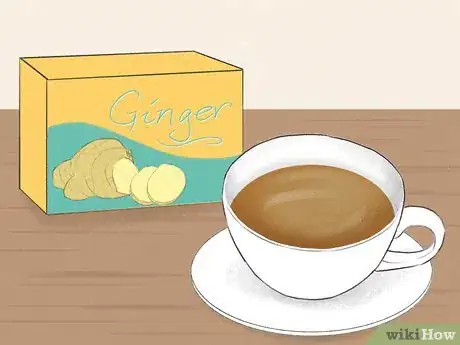
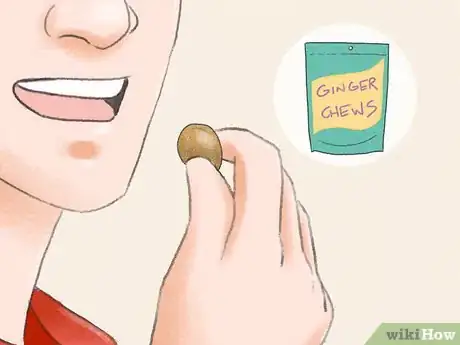

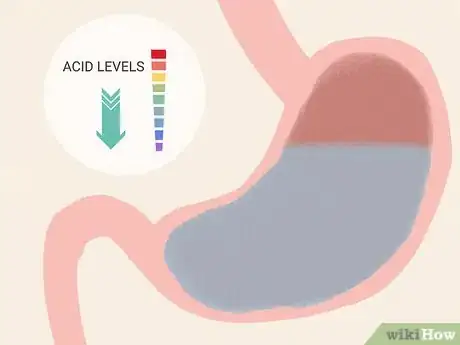


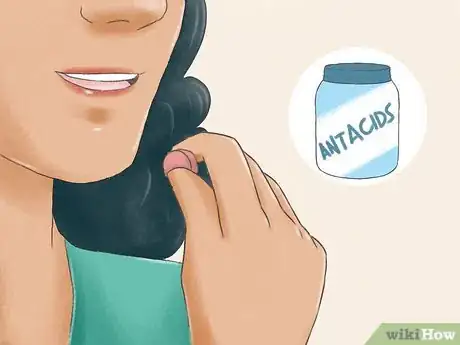
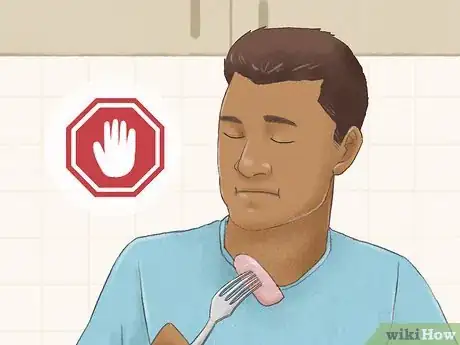



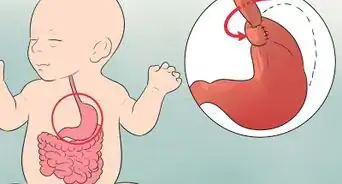

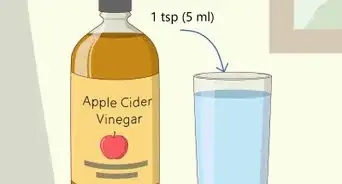















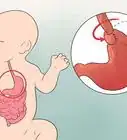




































Medical Disclaimer
The content of this article is not intended to be a substitute for professional medical advice, examination, diagnosis, or treatment. You should always contact your doctor or other qualified healthcare professional before starting, changing, or stopping any kind of health treatment.
Read More...